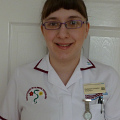My experience of the Formal Research Radiography Mentoring Scheme
Mentorship scheme
The Formal Research Radiography Mentoring Scheme (FoRRM) was piloted from January to September 2017. Set up by Dr Christina Malamateniou, who also led the steering committee, and funded by the Society and College of Radiographers (SCoR), the aim of FoRRM is to increase the research capacity of both therapeutic and diagnostic radiographers with at least 3 years clinical experience, who were interested in and committed to a research career.
The scheme helps mentees, like myself, develop our research skills, career and confidence by being mentored by the top academic and clinical research radiographers in the UK. As well as organising three dedicated training and networking events for participants.
First networking meeting
The first meeting presented an opportunity to network with others in the radiography research world and build new contacts with both experienced researchers & those just beginning.
I was also introduced to my mentor Professor Peter Hogg, from the University of Salford. We worked on drafting our mentorship contract and identified the key objectives that we would try to meet over the next 8-9 months. These centred on helping me to develop an understanding of what a clinical academic career was and how I might be able to develop one in relation to the dental radiography work I do in Manchester.
Monthly Mentorship Meetings
Peter and I met every month during the scheme and were in email contact several times a week. The mentorship meetings helped me to gain knowledge about:
- What a clinical academic is
- What the purpose of a PhD is
- What national and local research strategies have an impact on dental radiography
- Oral health in Greater Manchester
- Greater Manchester health and social care devolution
The meetings helped me to develop a greater understanding of the wider research environment in Manchester and put my proposed research ideas into context. This in turn helped to develop a 5-10 year career action plan, including bidding for research grants.
I also developed skills key for an aspiring clinical academic: reflection; leadership; negotiation; presenting skills; networking; and the ability to be able to set realistic targets and timescales while a managing my own expectations.
Second Network Meeting
At the second networking event later in the year, I was among a number of mentees asked to present on our experience as a FoRRM mentee so far. I don’t mind giving presentations, in fact I quite enjoy it, and so I agreed.
I gave a five minute presentation about what Peter and I had worked on, which by that time was the completion of an NIHR fellowship application plus what I’d learnt from my mentorship meetings and activities.
The steering committee also hosted focus groups to give all FoRRM participants the chance to feedback and/or suggest improvements, as this was a pilot scheme. Themes discussed included resilience and management involvement.
What have I learnt?
My main takeaways from my FoRRM experience were:
- I’m not the only one! It is hard work becoming a clinical-academic, especially when your job role is 100% clinical and this can sometimes leave you feeling isolated. However, I found meeting others pursuing a similar career path very encouraging and affirming; especially when people shared their experiences during the network days.
- Learning in a mentorship relationship is a two way process. At the beginning of the scheme I thought I would be a burden to Peter and the learning process was going to be one way. However, my fears have proven to be unfounded. Through mentoring me, Peter has learnt a lot about the work of the Greater Manchester Health and Social Care Partnership and expanded his own research network.
However, the greatest bonus was that FoRRM gave me time and support to be able to reflect on my previous and current research activity, as well as consider future development opportunities. This has positively altered my perspective on research in dental radiography as a career.
Reflection and round-up
Following the end of the scheme in September 2017 mentees were asked to produce a reflective report on their experience and mentors were interviewed about theirs.
After a request from mentees and mentors, there was a final networking meeting where we celebrated successes and plans for our work and mentorships going forward. This includes plans for a second round of the scheme and the development of an online network for us all to keep in touch.
At this event we all also received our participation certificates and three awards were given out. Peter and I won the Mentoring Award. When announcing our award the steering committee stated ‘You have demonstrated excellent teamwork, exceeded your targets, despite all the challenges in the way and have communicated in a very efficient format all your suggestions to carry the scheme forward.’
What’s next for me?
Unfortunately, the NIHR doctoral fellowship application I submitted during my time on FoRRM was unsuccessful. However, Peter and I continue to work together on my professional research development and applying for research funding opportunities. In addition, we plan to write a journal article about what we have learnt and its impact on my research career.
Radiographers interested in becoming involved as mentees or mentors on the FoRRM scheme should contact: Christina.malamateniou@kcl.ac.uk or rachelh@sor.org.uk





